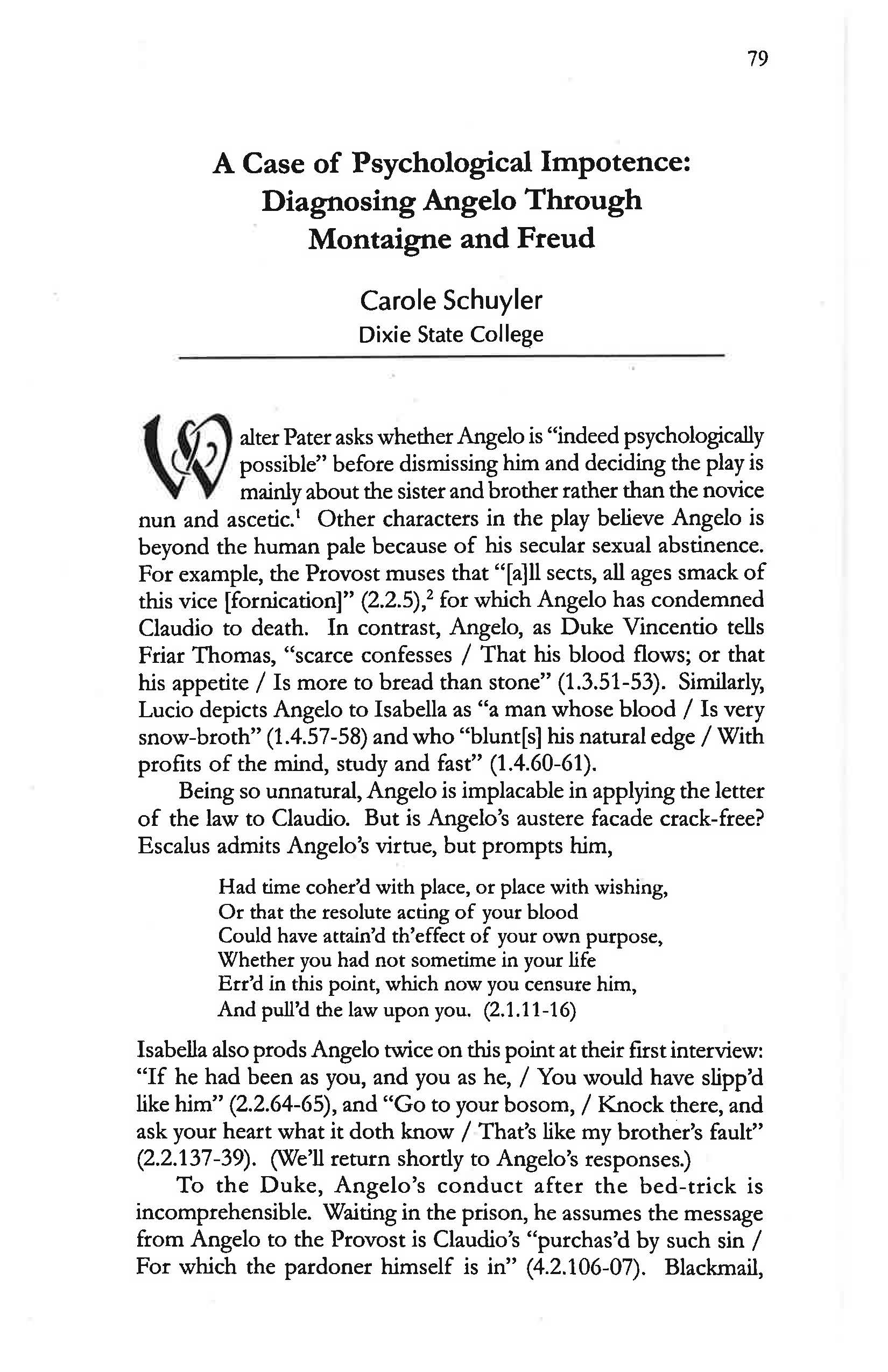A Case of Psychological Impotence: Diagnosing Angelo Through Montaigne and Freud
Main Article Content
Abstract
Walter Pater asks whether Angelo is “indeed psychologically possible” before dismissing him and deciding the play is mainly about the sister and brother rather than the novice nun and ascetic.1 Other characters in the play believe Angelo is beyond the human pale because of his secular sexual abstinence. For example, the Provost muses that “[a]ll sects, all ages smack of this vice [fornication]” (2.2.5),2 for which Angelo has condemned Claudio to death. In contrast, Angelo as Duke Vincentio tells Friar Thomas, “scarce confesses / That his blood flows; or that his appetite / Is more to bread than stone” (1.3.51-53). Similarly, Lucio depicts Angelo to Isabella as “a man whose blood / Is very snow-broth” (1.4.57-58) and who “blunt[s] his natural edge / With profits of the mind, study and fast” (1.4.60-61).
